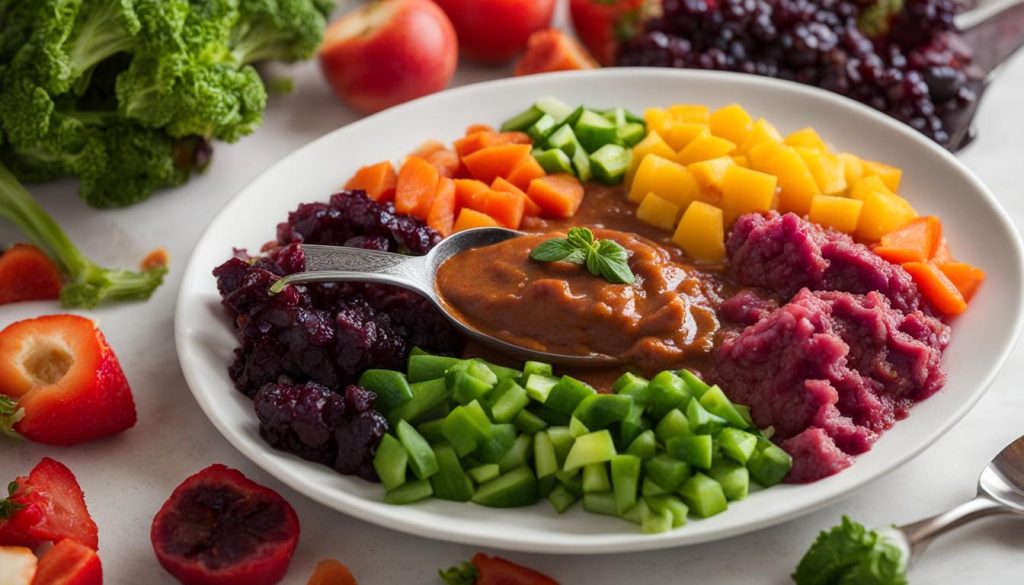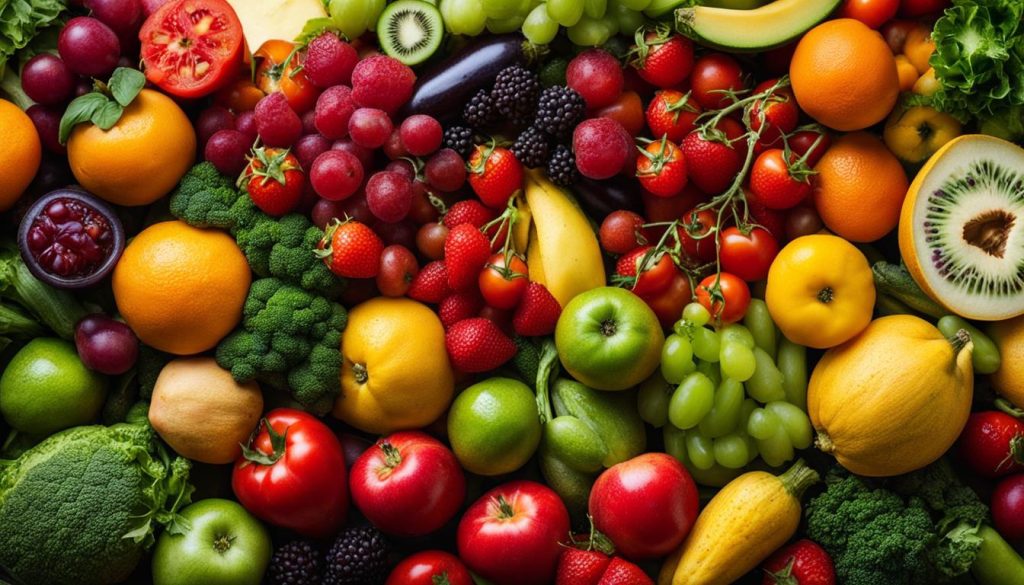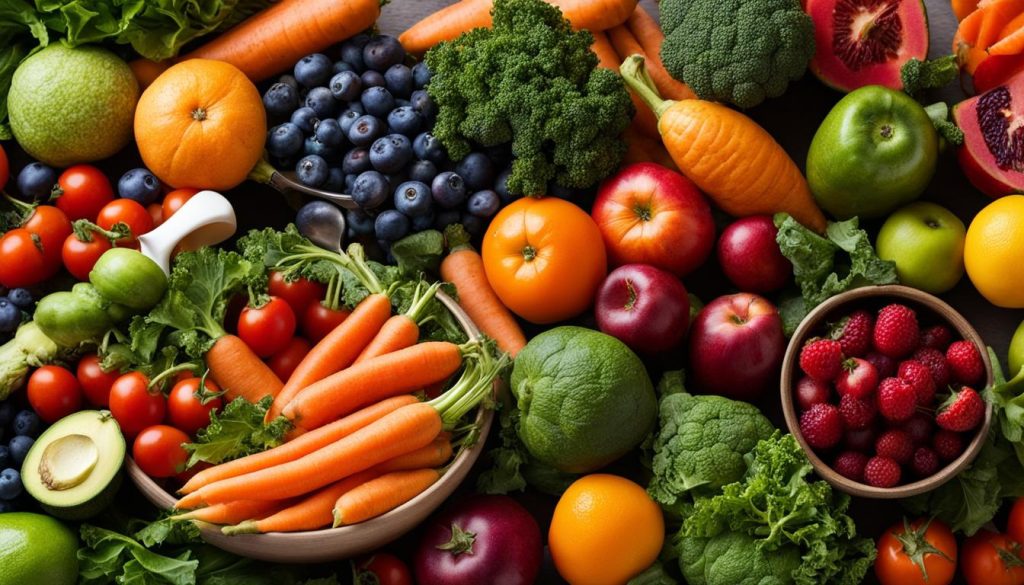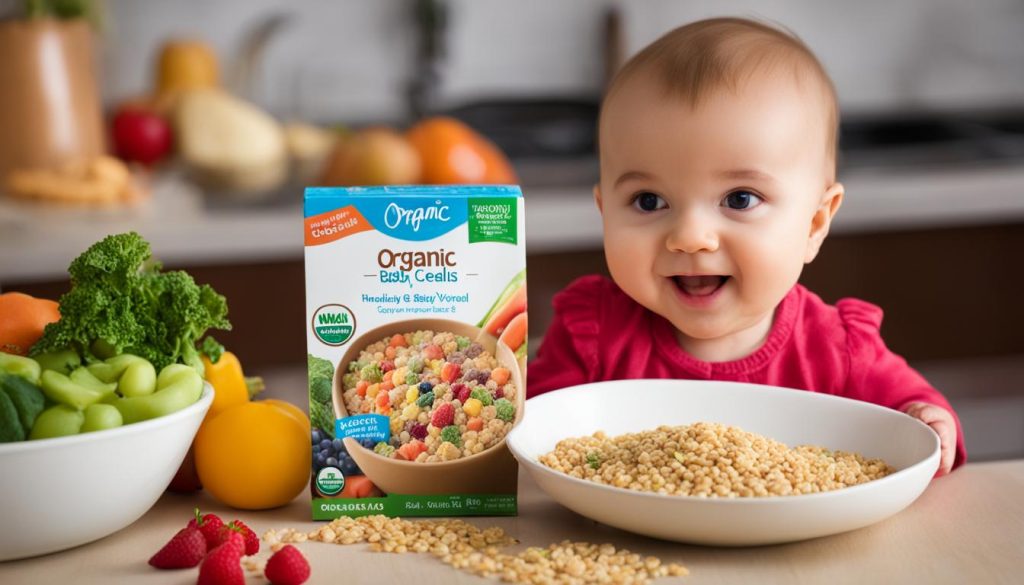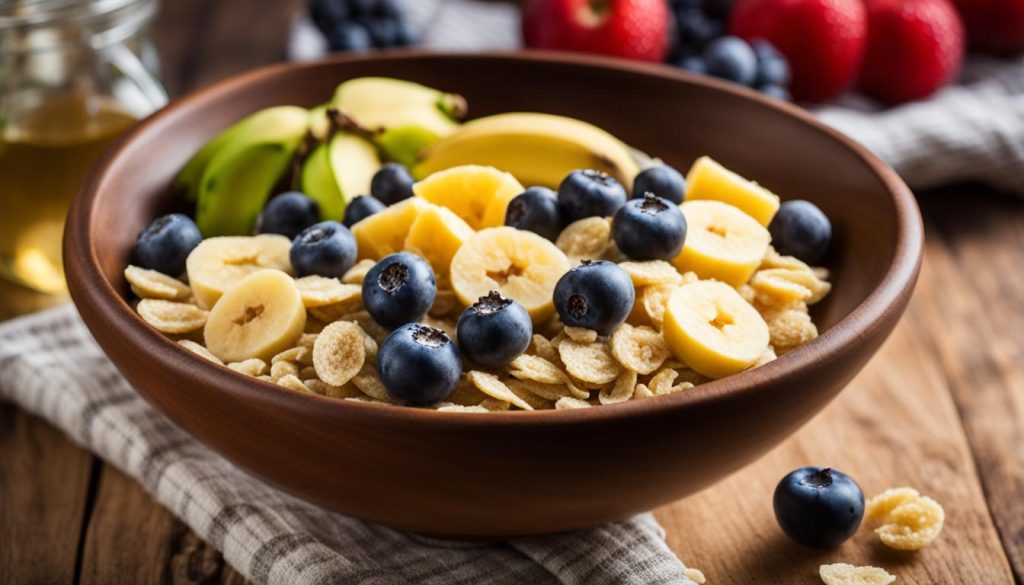Babies experience rapid growth and require sufficient protein in their diet. While fruits and vegetables are nutritious, they lack the protein content necessary for a baby’s development.
According to experts, babies between 6 and 12 months need around 11 grams of protein daily, which increases to about 13 grams for toddlers aged 1 to 3 years. Introducing protein-rich foods like salmon, ground beef, chicken, peanut butter, eggs, tofu, cottage cheese, Greek yogurt, lentils, and quinoa can help support your baby’s growth and provide essential nutrients.
When it comes to ensuring your baby receives the necessary protein, meat baby food is an excellent option. In this article, I will explore the benefits of organic meat baby food, the advantages of homemade meat baby food, and tips for introducing meat baby food to your little one. Additionally, I will discuss the importance of protein in your baby’s development and how to choose the best meat baby food products on the market.
Stay tuned for valuable information and easy meat baby food recipes to help nourish your baby’s growth and provide them with a diverse and balanced diet.
The Benefits of Organic Meat Baby Food for Your Baby’s Health
When it comes to feeding your baby, choosing the right food is crucial for their health and development. Organic meat baby food offers several benefits that can contribute to your little one’s well-being. By opting for organic options, you can provide your baby with high-quality, natural ingredients that are free from synthetic fertilizers, pesticides, and GMOs.
One of the key differences between organic and conventional baby foods is the absence of pesticides in organic products. Pesticides are commonly used in conventional farming to protect crops from pests, but they can potentially have harmful effects on human health, especially in infants. By choosing organic meat baby food, you can minimize your baby’s exposure to these chemicals and create a safer and healthier eating environment for them.
Not only does organic meat baby food reduce exposure to harmful substances, but it also ensures that your baby receives optimal nutrition. Organic baby food is made from ingredients that are grown and produced without the use of artificial additives or genetically modified organisms. This means that your baby is consuming meat that is rich in essential nutrients without any potentially harmful additives or chemicals.
Additionally, organic meat baby food provides the same protein content as conventional options. Protein is crucial for your baby’s growth and development, as it supports the building and repairing of tissues, muscle growth, and the production of enzymes and hormones. By choosing organic meat baby food, you can ensure that your baby receives the necessary protein intake while minimizing their exposure to potentially harmful substances.
Overall, opting for organic meat baby food can have numerous benefits for your baby’s health and well-being. From reducing pesticide exposure to ensuring optimal nutrition, organic options provide a safer and healthier choice for your little one. By making informed decisions and selecting high-quality organic baby food products, you can nourish your baby with the best ingredients and set the foundation for a healthy and balanced diet.
Homemade Meat Baby Food: A Nutritious and Budget-Friendly Option
Making your own meat baby food at home provides numerous advantages. Firstly, it allows you to have full control over the ingredients used, ensuring that your baby is consuming fresh and nutritious foods. By preparing homemade meat baby food, you can ensure that your little one is getting the best quality proteins and nutrients for their development.
Homemade meat baby food also enables you to customize the flavors and textures according to your baby’s preferences. You can experiment with different combinations of meats and veggies to create delicious and nutritious meals that your baby will enjoy. Plus, preparing your own baby food is often more cost-effective compared to buying pre-packaged options. It not only saves money in the long run but also gives you peace of mind knowing exactly what goes into your baby’s meals.
Benefits of Homemade Baby Food Recipes
There are several benefits to making your own meat baby food recipes:
- You have control over the quality and freshness of the ingredients used.
- You can avoid added sugars, preservatives, and artificial flavors or colors.
- You can introduce a variety of flavors to expand your baby’s palate.
- Homemade baby food can be more economical compared to store-bought options.
- You can tailor the texture to your baby’s developmental stage, gradually introducing chunkier textures as they grow.
Making homemade meat baby food doesn’t have to be complicated or time-consuming. There are plenty of easy recipes available that require minimal ingredients and equipment. Simple cooking methods such as steaming and pureeing can help retain the maximum nutrients in the food while making it soft and easy for your baby to consume.
Sample Homemade Meat Baby Food Recipe
“Chicken and Sweet Potato Puree”
Ingredients:
- 1 boneless, skinless chicken breast
- 1 small sweet potato, peeled and diced
- Water or breast milk/formula for thinning, if needed
Instructions:
- Steam the chicken breast and sweet potato until cooked through and tender.
- Place the cooked chicken breast and sweet potato in a blender or food processor.
- Add a small amount of water, breast milk, or formula to achieve the desired consistency.
- Blend until smooth, adding more liquid if necessary.
- Allow the puree to cool before serving it to your baby.
Remember to introduce new foods one at a time, looking out for any signs of allergies or digestive issues. It’s always a good idea to consult with your pediatrician or a registered dietitian for guidance on introducing homemade meat baby food and meeting your baby’s nutritional needs. With a little bit of planning and preparation, you can provide your baby with wholesome, homemade meals that are both nutritious and cost-effective.
Choosing the Best Meat Baby Food Products on the Market
When it comes to selecting meat baby food products for your little one, it’s crucial to choose the best options available. With numerous brands and varieties on the market, finding high-quality options can ensure that your baby receives the necessary nutrition for their growth and development. Here are some recommended meat baby food brands and top-rated products to consider:
Recommended Meat Baby Food Brands:
- 1. Earth’s Best: Known for their organic baby food options, Earth’s Best offers a range of meat-based products made from high-quality ingredients.
- 2. Happy Baby Organics: Happy Baby Organics provides a selection of organic meat baby food pouches, including chicken, beef, and turkey.
- 3. Plum Organics: Plum Organics offers a variety of meat baby food options, with a focus on organic and natural ingredients.
These brands prioritize quality, nutritional value, and safety, ensuring that your baby receives the best possible meat baby food.
Top-Rated Meat Baby Food Products:
| Product | Description | Key Benefits |
|---|---|---|
| 1. Earth’s Best Organic Chicken & Brown Rice | Pureed organic chicken blended with brown rice for a balanced meal. | Rich in protein, iron, and essential nutrients. |
| 2. Happy Baby Organics Stage 2 Turkey & Quinoa | Organic turkey puree mixed with quinoa for added texture and taste. | Good source of protein, omega-3 fatty acids, and vitamins. |
| 3. Plum Organics Mighty Veggie Beef, Zucchini, & Spinach | A blend of organic beef, zucchini, and spinach for a nutrient-packed meal. | Provides protein, fiber, and essential vitamins and minerals. |
These top-rated meat baby food products offer a combination of taste, nutrition, and convenience, making them excellent choices for your baby’s diet.
Remember to always read product labels, check for any potential allergens, and consult with your pediatrician before introducing new foods to your baby.
The Importance of Protein in Your Baby’s Development
Protein plays a crucial role in your baby’s overall development. It is essential for building and repairing tissues, supporting muscle growth, and producing enzymes and hormones. Adequate protein intake is especially important for brain development, as proteins are the building blocks for brain cells. Introducing protein-rich foods early in your baby’s diet can help support their cognitive development, muscle growth, and overall health. Incorporating a variety of protein sources, including meat, poultry, fish, dairy, legumes, and nuts, can provide your baby with the necessary amino acids and nutrients for optimal growth.
According to research, protein-rich foods play a vital role in the growth and development of babies. They provide the essential nutrients needed for the formation of organs, muscles, and tissues during the early stages of life. Protein also helps in the production of antibodies, which enhance the immune system’s ability to fight off infections and diseases. In addition, protein is involved in the creation of neurotransmitters, which are critical for brain function and development. Ensuring that your baby receives an adequate amount of protein is essential for their overall well-being.
When introducing protein-rich foods to your baby, it is important to consider their age and developmental stage. Start with smooth purees and gradually increase the texture and consistency as your baby grows. It is also important to choose age-appropriate protein sources and ensure that they are properly cooked and prepared to minimize the risk of foodborne illness. By providing your baby with a variety of protein-rich foods, you can help support their growth, development, and overall health.
The role of protein in a baby’s growth and development cannot be underestimated. From building and repairing tissues to supporting brain development, protein is an essential nutrient for your little one. Introducing a diverse range of protein-rich foods early in your baby’s diet can lay a strong foundation for their long-term health and well-being.
| Protein-Rich Foods for Babies | Benefits |
|---|---|
| Chicken | High in protein and essential amino acids |
| Salmon | Rich in omega-3 fatty acids and protein |
| Greek yogurt | Good source of protein and calcium |
| Eggs | Packed with protein and essential vitamins |
| Beans and lentils | Excellent source of plant-based protein and fiber |
| Peanut butter | High in protein and healthy fats |
Tips for Introducing Meat Baby Food to Your Little One
Introducing meat baby food to your little one is an important step in their journey of transitioning to solid foods. Here are some tips to help you navigate this exciting milestone:
Starting Solids with Meat
When introducing meat baby food, it’s recommended to start with single-ingredient purees. Start by offering a small amount of pureed meat mixed with breast milk, formula, or other pureed fruits or vegetables. Begin with a few teaspoons and gradually increase the portion size as your baby becomes more accustomed to the new taste and texture.
Transitioning to Meat Baby Food
As your baby gets used to the taste of meat, you can gradually increase the texture and thickness of the food. Start by offering finely chopped or shredded pieces of meat. This will help your baby develop their chewing and swallowing skills. Ensure that the meat is cooked thoroughly and is soft and tender for easy consumption.
Introducing Different Meats
It’s important to introduce a variety of meats to expose your baby to different flavors and nutrient profiles. You can include options such as chicken, beef, turkey, and fish in your baby’s diet. As you introduce each new meat, observe your baby for any signs of allergies or digestive issues. If your baby shows any adverse reaction, consult with your pediatrician before introducing that particular meat again.
Remember, every baby is different, and it may take some time for your little one to adjust to the taste and texture of meat baby food. Be patient and continue offering a variety of options to ensure a well-rounded diet for your baby.
| Key Points | Tips |
|---|---|
| Starting Solids with Meat | Start with single-ingredient purees mixed with breast milk, formula, or other pureed fruits or vegetables. Gradually increase portion size. |
| Transitioning to Meat Baby Food | Offer finely chopped or shredded pieces of meat to develop chewing and swallowing skills. Ensure meat is thoroughly cooked and tender. |
| Introducing Different Meats | Include a variety of meats such as chicken, beef, turkey, and fish. Observe for any adverse reactions and consult with a pediatrician if needed. |
Ensuring the Nutritional Needs of Your Baby with Meat Baby Food
Meeting the nutritional needs of babies is crucial for their growth and development. Protein, along with other essential nutrients, plays a vital role in supporting their overall health. Meat baby food is an excellent source of protein, offering a wide range of essential amino acids and micronutrients that are essential for your baby’s well-being.
The protein content in meat baby food varies depending on the type of meat and the preparation method. For example, beef and chicken are rich sources of protein, with around 20 grams per 100 grams of cooked meat. These proteins are necessary for building and repairing tissues, supporting muscle growth, and promoting a strong immune system.
Ensuring a balanced diet for infants is essential, and meat baby food can help achieve this goal. In addition to protein, meat contains essential nutrients like iron, zinc, and choline, which are crucial for brain development, immune function, and overall growth. A varied diet that includes different types of meat, fruits, vegetables, and grains can provide your baby with the necessary nutrients for optimal development.
| Essential Nutrients in Meat Baby Food | Average Quantity per 100g |
|---|---|
| Protein | 20g |
| Iron | 2.5mg |
| Zinc | 2mg |
| Choline | 80mg |
When introducing meat baby food to your little one’s diet, it’s essential to follow their developmental readiness and consult with your pediatrician. They can guide you on the appropriate age and texture for introducing meat, ensuring a safe and healthy transition. Remember to monitor your baby for any signs of allergies or digestive issues and introduce new foods one at a time to identify any potential reactions.
By including meat baby food in your baby’s meals, you can provide them with the necessary protein and essential nutrients to support their growth and development. Remember to prioritize a varied and balanced diet, incorporating different types of meats and other nutritious foods to ensure your baby receives the optimal nutrition they need during this critical stage of life.
Conclusion: Nourishing Your Baby with Meat Baby Food
Introducing a diverse diet for infants is crucial for promoting healthy growth and development. One way to ensure your baby receives the necessary nutrients is by nourishing them with meat baby food. Meat, known for its protein content, plays a vital role in supporting muscle growth, brain development, and overall health.
By introducing meat baby food into your little one’s meals, you’re laying the foundation for a lifetime of healthy eating habits. Whether you choose organic options, make your own homemade baby food, or opt for trusted brands, prioritizing a variety of meats can provide a balanced and nutritious diet. Remember, consulting with healthcare professionals can offer personalized advice tailored to your baby’s specific needs.
So, embrace the benefits of meat baby food and explore different protein-rich options to nourish your baby’s growing body. With their well-being in mind, you can promote a healthy future for your baby by introducing the goodness of meat into their diet.
FAQ
Why is protein important for my baby’s development?
Protein plays a crucial role in building and repairing tissues, supporting muscle growth, and producing enzymes and hormones. It is especially important for brain development.
How much protein does my baby need?
Babies between 6 and 12 months need around 11 grams of protein daily, while toddlers aged 1 to 3 years require about 13 grams.
Can I provide protein through fruits and vegetables?
While fruits and vegetables are nutritious, they lack the protein content necessary for a baby’s development. Protein-rich foods like meat, poultry, fish, dairy, legumes, and nuts are essential.
What are some protein-rich foods I can introduce to my baby?
Some protein-rich options include salmon, ground beef, chicken, peanut butter, eggs, tofu, cottage cheese, Greek yogurt, lentils, and quinoa.
What are the benefits of organic meat baby food?
Organic baby food is made from ingredients grown without synthetic fertilizers, pesticides, or GMOs. It ensures your baby consumes natural ingredients without potentially harmful chemicals.
Is organic meat baby food as nutritious as conventional meat baby food?
Yes, organic meat baby food offers the same protein content and is packed with essential nutrients. It minimizes your baby’s exposure to pesticides and other harmful substances.
Why should I make my own meat baby food at home?
Making your own meat baby food allows you to control the ingredients, customize flavors and textures, and can be more cost-effective than pre-packaged options.
How can I select high-quality meat baby food products?
Look for trusted brands that prioritize organic and natural ingredients, have transparent sourcing practices, and adhere to rigorous safety standards. Reading reviews and researching can help you make informed decisions.
How can I introduce meat baby food to my baby?
Start by offering small amounts of pureed meat mixed with breast milk, formula, or other pureed fruits or vegetables. Gradually increase the texture by introducing finely chopped or shredded pieces.
What are the nutritional benefits of meat baby food?
Meat contains essential vitamins and minerals such as iron, zinc, and choline, which are vital for brain development, immune function, and overall growth.
How can I ensure my baby’s nutritional needs are met with meat baby food?
Including a variety of meats in your baby’s diet can help provide a balanced intake of protein and essential nutrients. Consulting with healthcare professionals can provide personalized guidance.

